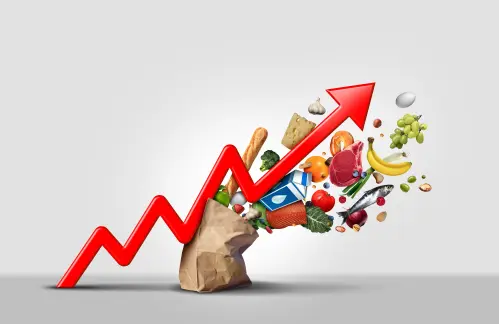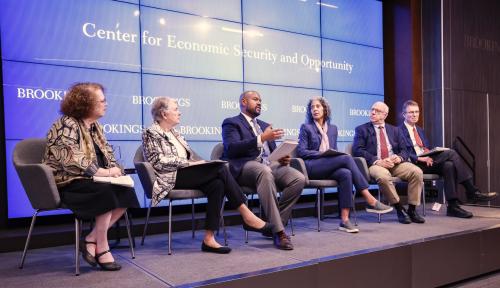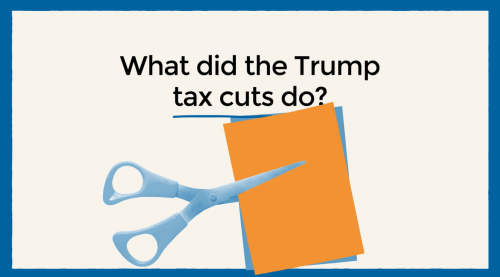While many steps have been taken to help shore up the floundering U.S. economy, William Gale, vice president and director of Economic Studies, notes in a new paper that the long-term fiscal situation is still very dire.
An Update on the Economic and Fiscal Crises: 2009 and Beyond », by William Gale and Alan Auerbach
Transcript
“Believe it or not the main finding is that things got worse. The administration’s budget, even if we do exactly what the administration wants, even if Congress imposes PAYGO and sticks to it for ten years, which is unheard of, even if the economic recovery works the way the administration says its going to, which is a very optimistic forecast, even if all those things happen we are on a unstable path for the budget, and we are on a unstable path within the next ten years. This is no longer a long-term scenario. I think the key message is “the future is now”. The future has arrived. In terms of these issues have become much more important much sooner than anyone wanted to as a combination of both the enormous economic downturn right now and the weakening long-term outlook that that sets up. “
“…We estimate that the fiscal gap is about nine percent of GDP under the administration’s budget. What that means is to create fiscal balance in the long-term we would need a nine percent of GDP increase in taxes or reduction in spending that started now and lasted till the end of time. Now nine percent of GDP is about how much we raised from the income tax in a normal year. It’s more than we are raising from the income tax right now. I’m not suggesting we double the income tax. In terms of the magnitude of the gap it’s enormous, and slowing health care costs one and a half percent for ten years as the administration talked about. That would make a little dent, but the gap would still be seven percent, about, for the foreseeable future. So the issue is certainly healthcare, but the issue is about a lot more than just health care. Our fiscal books are fundamentally out of balance.”
“…It’s going to take a major shift in public opinion to get anywhere on this. Politicians understand the issue behind closed doors, but when they are in front of the cameras the Republicans say ‘no new taxes’ and the Democrats say ‘no new taxes for ninety five percent of all households’. Neither one of those is a starting position for sensible fiscal reform. The Public though is just as fickle. If you ask the Public do you want a tax cut you’ll get eighty, eighty five percent of the people saying ‘yes’. If you ask them do you want a tax cut if it means we have to cut spending on you know environment, health, social security whatever you’ll get eighty percent of the people saying ‘no’. But of course a tax cut implies that we are going to have to cut spending at some point. So there is an enormous framing issue right now. So a few polls last week have shown that the public is all of sudden worried about the budget deficit, that doesn’t mean that the public understands that you got to raise taxes or cut spending.”



Commentary
The Fiscal Crisis: Bad Now, Worse Long-Term
June 22, 2009